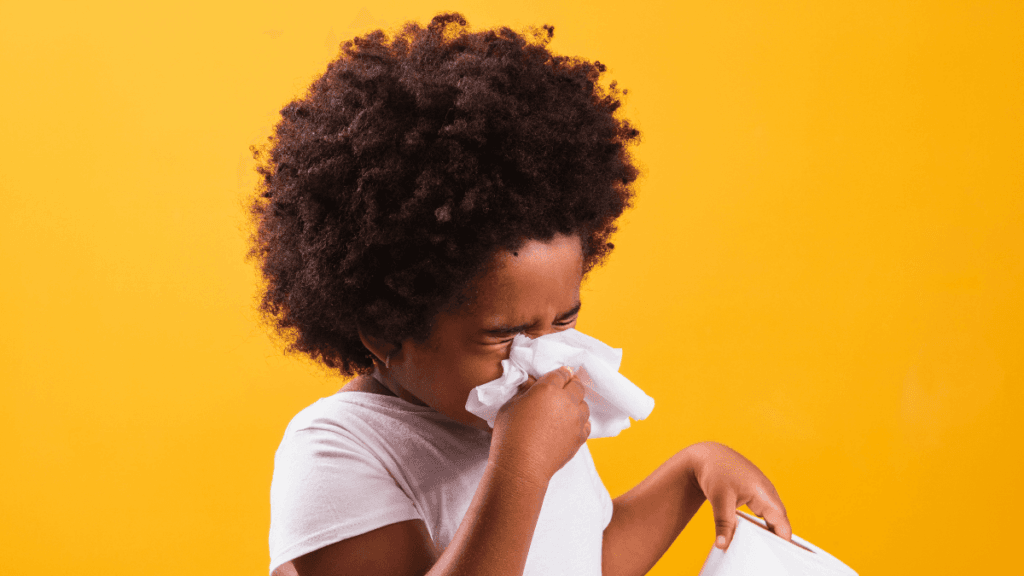Allergies are a common health concern among children and can significantly affect their quality of life. Whether triggered by food, dust, pollen, or other allergens, managing allergies in children requires careful planning and preventive measures. Below, we share effective tips to help parents manage and reduce allergy symptoms in children.
Understanding Allergies in Children
Allergies occur when the immune system reacts to a foreign substance (allergen) that is typically harmless to most people. Common allergens include:
- Food allergens: Milk, eggs, peanuts, soy, wheat, fish, and shellfish.
- Environmental allergens: Pollen, dust mites, pet dander, and mold.
- Skin allergens: Certain soaps, detergents, or materials like latex.
- Insect stings: Bee or wasp stings may also trigger allergic reactions.
Children with a family history of allergies or asthma are more likely to develop allergies. Symptoms can range from mild to severe and may include sneezing, itchy eyes, rashes, swelling, or difficulty breathing.
Common Allergy Symptoms to Watch For
Recognizing allergy symptoms early is crucial for effective management. Symptoms may vary depending on the allergen but commonly include:
- Respiratory symptoms: Sneezing, runny nose, congestion, or wheezing.
- Skin symptoms: Rashes, hives, eczema, or swelling.
- Gastrointestinal symptoms: Nausea, vomiting, diarrhea, or abdominal pain.
- Anaphylaxis: A severe, life-threatening reaction that requires immediate medical attention.
Related: Food Poisoning First Aid: Essential Steps to Take in an Emergency
Effective Allergy Management Tips
1. Identify and Avoid Triggers
The first step in managing allergies is identifying the specific triggers. An allergist can conduct tests such as skin prick tests or blood tests to pinpoint allergens. Once identified:
- Keep the home environment allergen-free (e.g., using hypoallergenic bedding).
- Avoid foods that trigger allergic reactions by carefully reading labels.
- Limit exposure to pollen by keeping windows closed during high-pollen seasons.
2. Keep the Home Allergen-Free
Creating a safe environment at home can significantly reduce allergy symptoms:
- Control dust mites: Use mattress and pillow covers, wash bedding in hot water weekly, and vacuum frequently.
- Minimize pet allergens: Keep pets out of the child’s bedroom and groom them regularly.
- Reduce mold: Fix leaks promptly, use a dehumidifier, and clean damp areas regularly.
- Air quality: Use air purifiers with HEPA filters and avoid smoking indoors.
3. Maintain a Healthy Diet
A strong immune system can help children cope with allergies more effectively. Ensure your child eats a balanced diet rich in fruits, vegetables, and whole grains. Probiotics, found in yogurt and fermented foods, may also support gut health and reduce allergy symptoms.
4. Medication Management
Over-the-counter or prescription medications can help alleviate allergy symptoms:
- Antihistamines: Reduce sneezing, itching, and runny nose.
- Decongestants: Help with nasal congestion (use with caution and only for short periods).
- Nasal sprays: Help reduce inflammation in the nasal passages.
- Epinephrine auto-injectors: Essential for children at risk of anaphylaxis.
Always consult a healthcare provider before giving medications to your child.
5. Teach Your Child About Their Allergies
Educating your child about their allergies empowers them to make safe choices. Teach them to:
- Recognize symptoms of an allergic reaction.
- Avoid sharing food or drinks with friends.
- Inform teachers, caregivers, or friends about their allergies.
6. Work with Schools and Caregivers
Ensure that your child’s school and caregivers are aware of their allergies. Provide detailed instructions, including:
- A list of allergens to avoid.
- An action plan for managing allergic reactions.
- Medications like antihistamines or epinephrine auto-injectors, if necessary.
7. Monitor Seasonal Allergies
Seasonal allergies, like hay fever, can be managed by:
- Checking pollen counts daily and keeping your child indoors when levels are high.
- Encouraging your child to shower and change clothes after outdoor activities.
- Using saline nasal rinses to clear pollen from the nasal passages.
8. Consider Immunotherapy
For severe allergies, immunotherapy (allergy shots or sublingual tablets) may help reduce sensitivity to allergens. Consult an allergist to determine if this treatment is appropriate for your child.
When to Seek Medical Help
While most allergies can be managed effectively, some reactions may require immediate medical attention. Seek help if your child experiences:
- Difficulty breathing.
- Swelling of the face, lips, or tongue.
- Severe abdominal pain or vomiting after eating.
- Signs of anaphylaxis, such as fainting or rapid heart rate.
Preventive Tips for New Parents
For parents of infants, early prevention can reduce the risk of allergies:
- Breastfeeding: Provides essential nutrients and supports the immune system.
- Introducing solid foods: Introduce allergenic foods like peanuts and eggs early (around six months) under a doctor’s guidance.
- Reduce exposure to smoke and pollutants: Avoid smoking around your child.
Tip: 10 Best and Healthy Breakfast Ideas for You And Your Family
Natural Remedies for Allergy Relief
While medication is often necessary, some natural remedies may provide additional relief:
- Honey: Local honey may help build tolerance to pollen over time.
- Steam inhalation: Relieves nasal congestion.
- Quercetin: Found in foods like apples and onions, this natural antihistamine may help reduce symptoms.
Always consult a healthcare provider before trying natural remedies, especially with children.
Also read: Online Safety for Kids: 15 Tools and Tips Every Parent Should Know
Managing allergies in children requires a proactive approach, including avoiding triggers, maintaining a healthy environment, and seeking medical advice when needed. By implementing these tips, parents can help their children live healthier, allergy-free lives.










